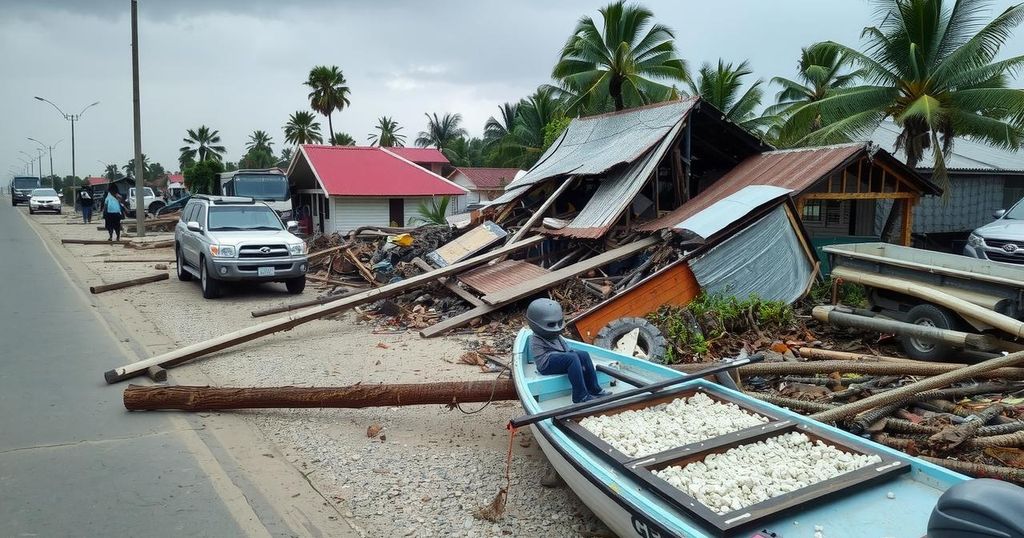Death Toll from Cyclone Chido in Mozambique Rises to 45
Cyclone Chido has claimed 45 lives in Mozambique, with 38 in Cabo Delgado and additional casualties in Nampula and Niassa provinces. The cyclone caused injuries to nearly 500 individuals and resulted in the destruction of homes, affecting approximately 181,000 people. Cyclone Chido’s impact is exacerbated by the region’s ongoing vulnerabilities due to conflict and underdevelopment.
In the aftermath of Cyclone Chido, the death toll in Mozambique has tragically risen to 45, as confirmed by the National Institute of Risk and Disaster Management. The cyclone initially made landfall on December 15, 2024, in the Cabo Delgado province, resulting in 28 fatalities. As of Wednesday, the updated report indicated that Cabo Delgado accounts for 38 of the fatalities, while four individuals lost their lives in Nampula province and three in Niassa province. The cyclone inflicted widespread damage, injuring nearly 500 individuals and destroying close to 24,000 homes, with 12,300 homes sustaining partial damage. Furthermore, approximately 181,000 individuals have been adversely affected by this devastating storm, which brought sustained winds of approximately 260 kilometers (160 miles) per hour and heavy rainfall exceeding 250 millimeters (10 inches) within a 24-hour period.
Cyclone Chido struck a region already accustomed to recurring cyclones, further exacerbated by challenges such as ongoing conflict and underdevelopment. The cyclone followed its trajectory after impacting the Indian Ocean island of Mayotte, where reports suggest that it has resulted in significant casualties.
The occurrence of cyclones in Mozambique has been a recurring phenomenon due to the country’s geographical location along the Indian Ocean. Cyclone Chido is part of this pattern, having struck parts of northern Mozambique, particularly the Cabo Delgado province, which is frequently affected by severe weather events. The region faces vulnerabilities not only from natural disasters but also from socio-economic challenges stemming from conflict and underdevelopment. The emergency response to such events is critical to mitigating the effects on the population, which faces considerable risks when these calamities strike.
The devastating impact of Cyclone Chido underscores the urgent need for enhanced disaster preparedness and response mechanisms in Mozambique. With a rising death toll and extensive damage to infrastructure and communities, stakeholders must prioritize support for affected populations. The situation calls for a coordinated humanitarian response to address immediate needs and long-term recovery efforts in a region already facing considerable challenges.
Original Source: www.seychellesnewsagency.com




Post Comment